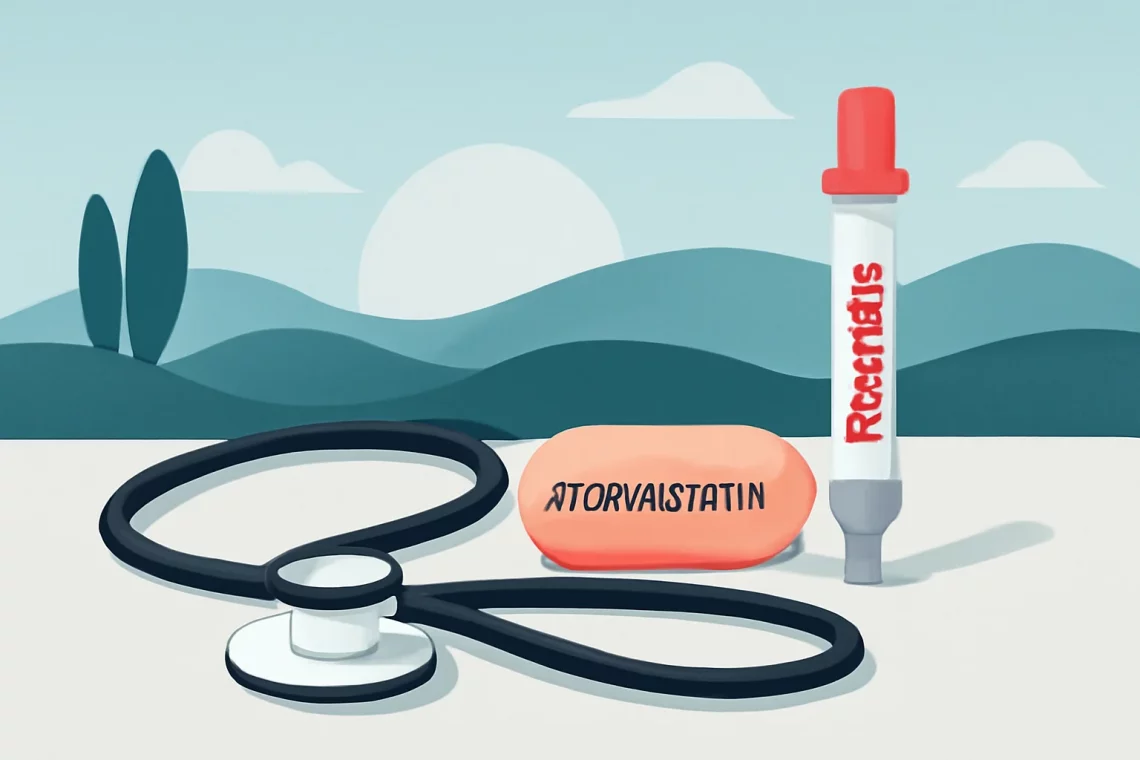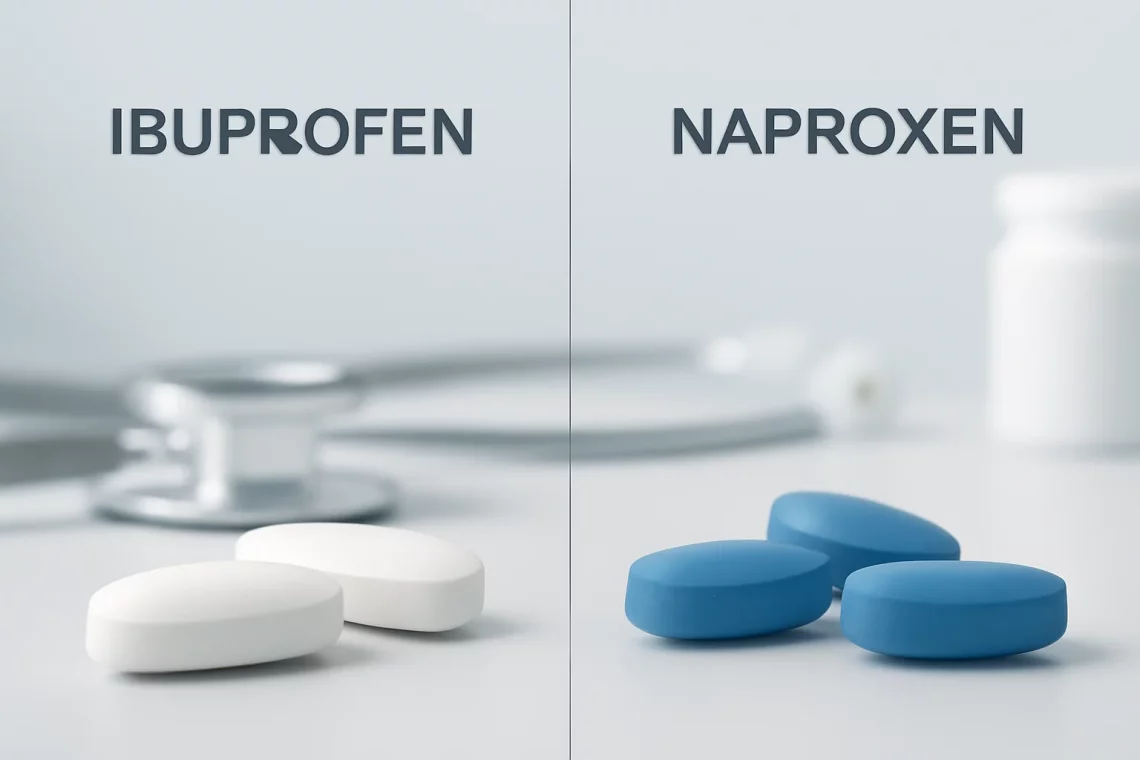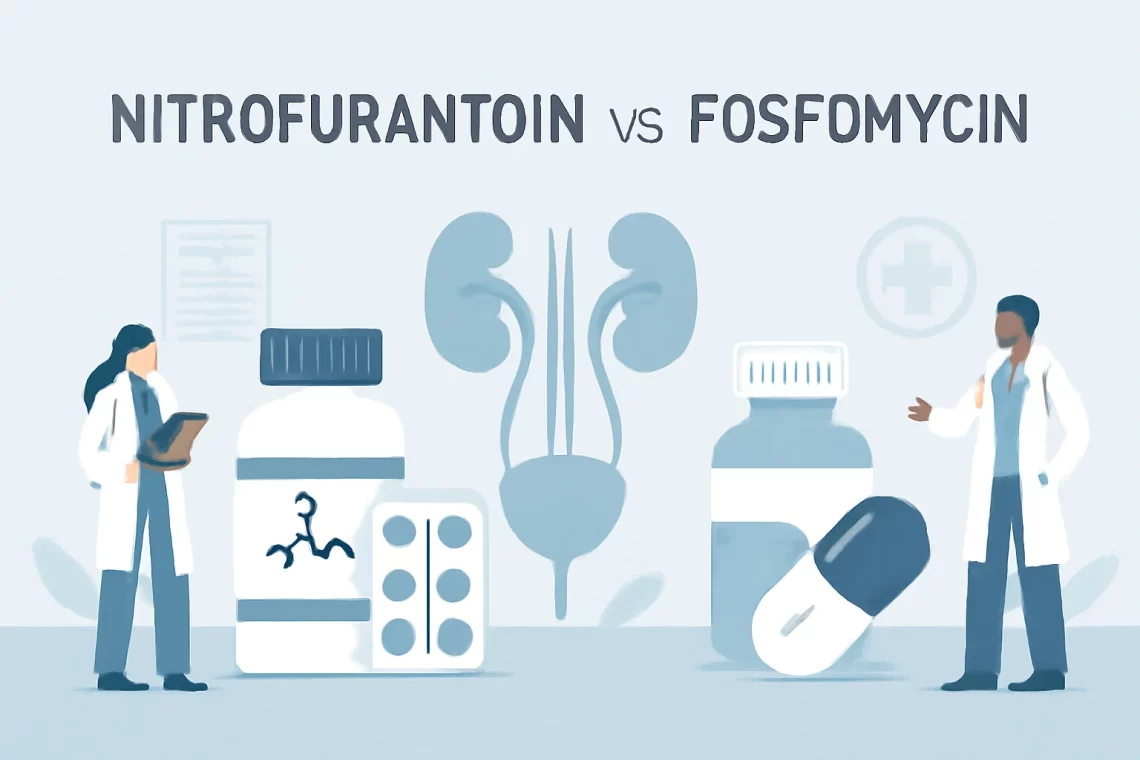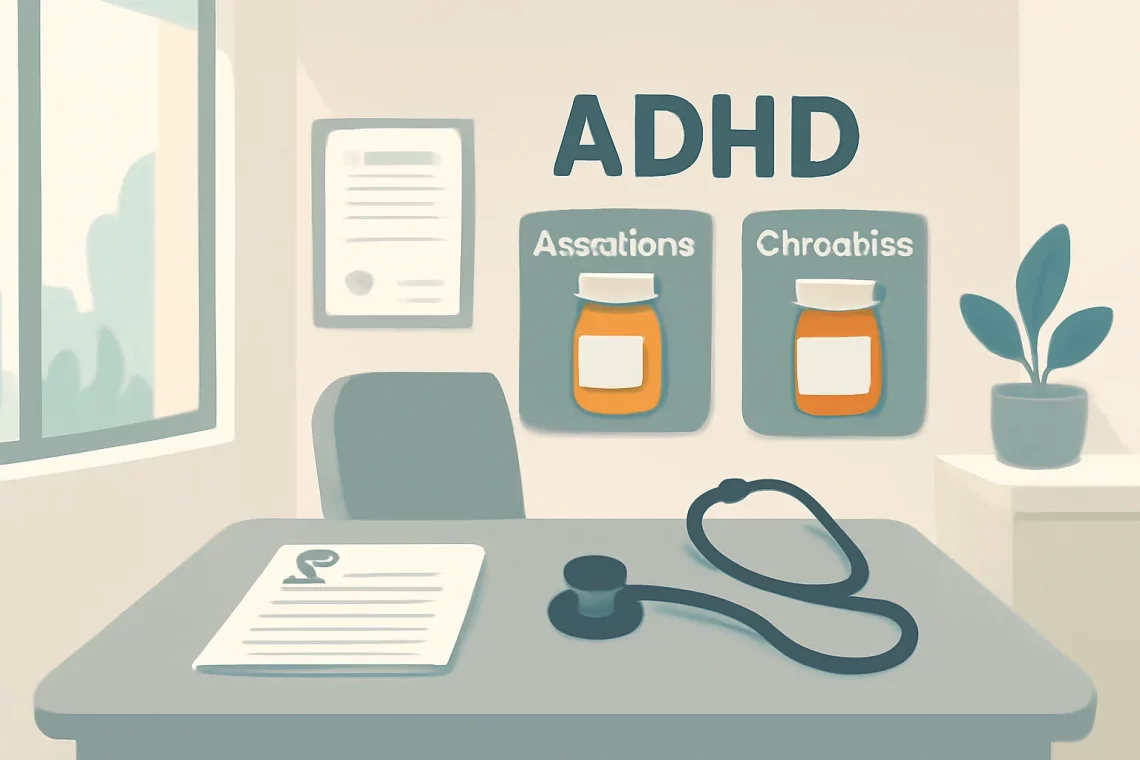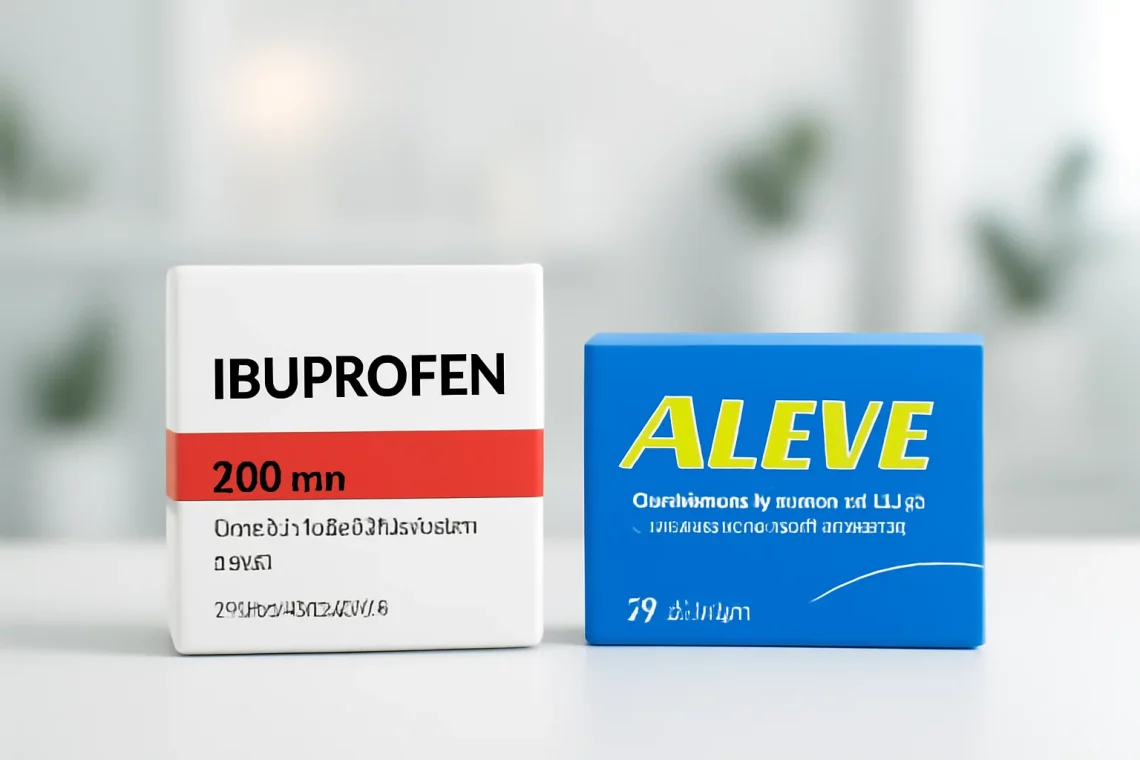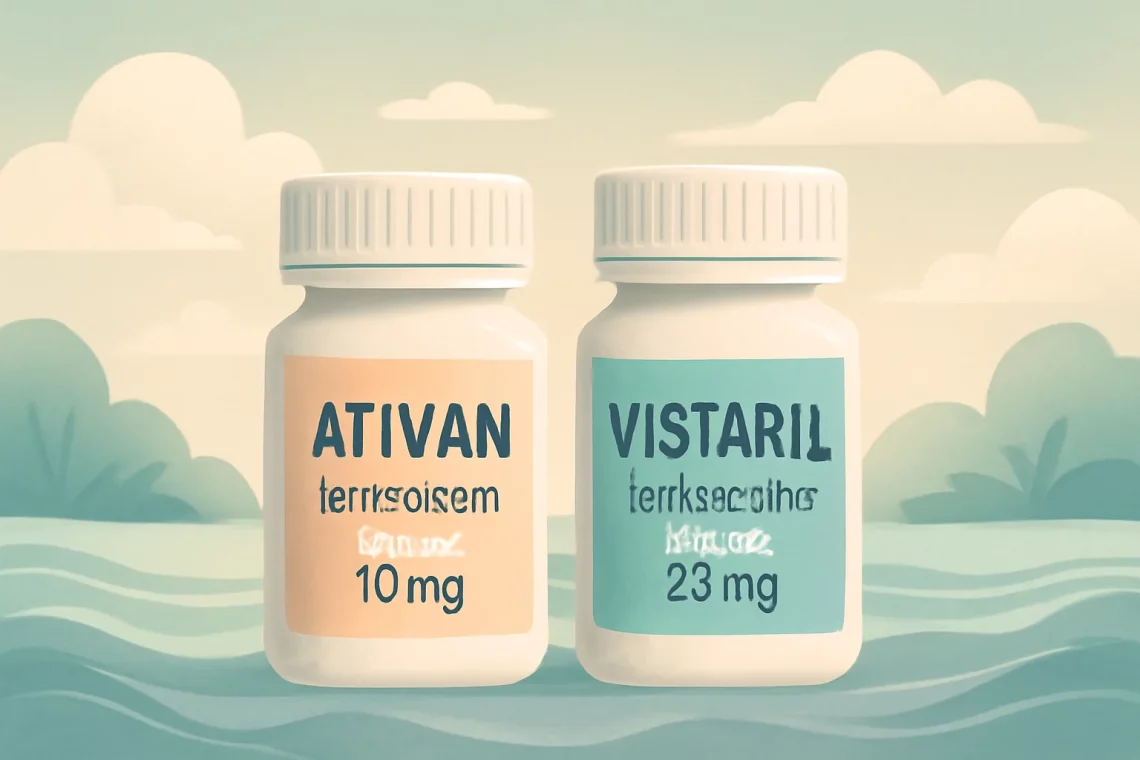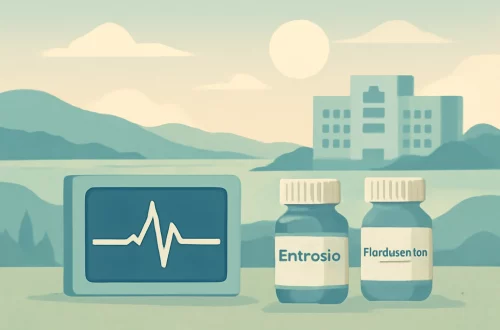Lifestyle
-
Atorvastatin vs Repatha: Which Cholesterol Treatment is Better?
Atorvastatin and Repatha represent two distinct approaches to managing cholesterol levels and reducing cardiovascular risk. As cardiovascular diseases continue to be a leading cause of mortality worldwide, the importance of effective cholesterol management cannot be overstated. Elevated levels of low-density lipoprotein (LDL) cholesterol are a significant risk factor for heart attacks and strokes, prompting the need for medications that can effectively lower these levels. Atorvastatin, a member of the statin family, has been widely used for years as a first-line treatment for high cholesterol. It works by inhibiting an enzyme involved in cholesterol production in the liver, thus reducing LDL cholesterol levels. On the other hand, Repatha, a monoclonal antibody,…
-
Ibuprofen vs Naproxen: Which Pain Reliever is Right for You?
Ibuprofen and Naproxen are two of the most commonly used nonsteroidal anti-inflammatory drugs (NSAIDs) available today. Both medications are widely utilized for their effectiveness in alleviating pain, reducing inflammation, and lowering fever. They are often recommended for various conditions, including headaches, muscle aches, arthritis, and menstrual cramps. However, despite their similarities, Ibuprofen and Naproxen have distinct characteristics that make them suitable for different situations and patient needs. Understanding how these medications work, their potential side effects, and their differences can help individuals make informed choices about pain management. While some may find one drug more effective than the other, the choice between Ibuprofen and Naproxen may depend on various factors,…
-
Nitrofurantoin vs Fosfomycin: Which is Better for Urinary Infections?
Nitrofurantoin and fosfomycin are two antibiotics commonly used in the treatment of urinary tract infections (UTIs), a prevalent condition affecting millions globally. Both medications are effective against a variety of bacteria that cause these infections, yet they possess distinct mechanisms of action, indications, and potential side effects. Understanding the nuances between these two options can be crucial for patients and healthcare providers alike when making informed decisions about treatment. The choice of antibiotic can significantly impact the effectiveness of treatment and the patient’s overall experience. Nitrofurantoin, often prescribed for uncomplicated UTIs, has been a reliable choice for many years. Its ability to target specific bacteria while being less effective against…
-
Comparing Nitrofurantoin and Fosfomycin for Urinary Tract Infections
Nitrofurantoin and fosfomycin are two antibiotics commonly used to treat urinary tract infections (UTIs). Both medications have unique mechanisms of action and various indications for use, making them valuable options in the realm of antimicrobial therapy. With the increasing prevalence of antibiotic resistance, understanding the differences between these two drugs is crucial for both healthcare providers and patients. Factors such as efficacy, side effects, dosage, and patient-specific considerations play a significant role in determining which antibiotic may be more appropriate for a given situation. As urinary tract infections continue to affect millions of individuals worldwide, the choice between nitrofurantoin and fosfomycin remains a relevant topic in modern medicine. In the…
-
Guanfacine vs Clonidine: Choosing the Right Medication for ADHD
Guanfacine and clonidine are both medications that belong to a class known as alpha-2 adrenergic agonists. They are primarily used to treat attention deficit hyperactivity disorder (ADHD) and hypertension, but they have gained attention for their potential benefits in various other conditions. As the medical community continues to explore their pharmacological profiles, patients and healthcare professionals alike seek to understand the nuances of each medication. Both guanfacine and clonidine work by affecting certain receptors in the brain, leading to a decrease in sympathetic nervous system activity. This can result in lowered heart rate and blood pressure, as well as improvements in attention and impulse control. However, despite their similarities, these…
-
Ibuprofen vs Aleve: Which Pain Reliever is Right for You?
In the realm of over-the-counter pain relief, two names frequently rise to the forefront: Ibuprofen and Aleve. Both medications are popular choices for alleviating pain, reducing inflammation, and managing fever. However, despite their similar applications, they belong to different classes of nonsteroidal anti-inflammatory drugs (NSAIDs), which can lead to variations in their effectiveness, side effects, and duration of action. Understanding the differences between these two medications is crucial for making informed decisions regarding pain management. Ibuprofen is a non-selective NSAID that works by inhibiting certain enzymes involved in the inflammatory process, while Aleve, which contains naproxen, has a longer duration of action and may be preferred for chronic conditions. As…
-
Ativan vs Vistaril: A Comprehensive Comparison of Anxiety Medications
Ativan and Vistaril are two medications often used to manage anxiety and related conditions, but they belong to different drug classes and have distinct mechanisms of action. Understanding these differences is crucial for patients and healthcare providers when determining the most appropriate treatment option. Both medications have their unique benefits and potential side effects, which can influence the choice between them. Ativan, a brand name for lorazepam, is a benzodiazepine known for its sedative properties. It is commonly prescribed for anxiety disorders, insomnia, and even certain seizure disorders. Vistaril, or hydroxyzine, is an antihistamine with anxiolytic properties, often used for anxiety relief and as a sedative prior to surgery. By…
-
Vraylar vs Saphris: A Comprehensive Comparison of Two Antipsychotics
Vraylar and Saphris are two medications commonly prescribed for the treatment of mental health disorders, particularly those within the spectrum of schizophrenia and bipolar disorder. Mental health challenges are complex and multifaceted, often requiring a personalized approach to treatment. As more individuals seek effective solutions, understanding the available options becomes crucial. Both Vraylar and Saphris belong to a class of medications known as atypical antipsychotics. These drugs have been developed to address symptoms associated with severe mental health conditions while aiming to minimize side effects often associated with traditional antipsychotics. Patients and healthcare providers alike must consider various factors when choosing a treatment plan, including efficacy, side effects, and individual…
-
Benzonatate vs Delsym: A Comprehensive Comparison of Cough Remedies
Benzonatate and Delsym are two commonly used medications that help alleviate cough symptoms, yet they operate through different mechanisms and are prescribed for various conditions. Understanding the distinctions between these two medications can be crucial for individuals seeking relief from persistent coughing, whether caused by allergies, colds, or other respiratory issues. Coughing is a natural reflex that helps clear the airways of irritants, but when it becomes excessive or chronic, it can lead to discomfort and interfere with daily activities. With a plethora of over-the-counter and prescription options available, patients often find themselves confused about which treatment is most suitable for their specific needs. Benzonatate and Delsym are among the…
-
Guafenesin vs Acetylcysteine: Which Mucolytic is Right for You?
Guafenesin and acetylcysteine are two substances often discussed in the context of respiratory health. Both are utilized for their mucolytic properties, aiding in the clearance of mucus from the airways. Understanding how these compounds function and their respective roles in treating conditions like chronic bronchitis, asthma, or cystic fibrosis can be pivotal for patients seeking relief from respiratory discomfort. Guafenesin is primarily known as an expectorant. By loosening phlegm and thinning bronchial secretions, it facilitates easier breathing and cough relief. On the other hand, acetylcysteine operates as a mucolytic agent, breaking down the structure of mucus, thereby enhancing its clearance from the respiratory tract. While both serve similar purposes, their…
